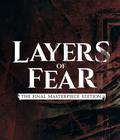The lawsuit marks a new legal front against 321 Studios, already at legal odds with Hollywood over the company's DVD-copying software.
Federal judges in New York and California have barred 321 from marketing the questioned DVD-cloning software - a victory for movie studios, which contended that such products violate the 1998 Digital Millennium Copyright Act. That law bars circumvention of anti-piracy measures used to protect DVDs and other technology.
Since those rulings, 321 has shipped retooled versions of its DVD-copying products, removing the software component required to descramble movies.
Tuesday's lawsuit - filed by Atari Inc., Electronic Arts Inc. and Vivendi Universal Games Inc. - also accuses 321 of violating the copyright law by circumventing technological protections used by entertainment software publishers to prevent piracy.
Doug Lowenstein, president of the Entertainment Software Association trade group, said the lawsuit seeks unspecified damages.
"There's not a dollar figure inserted there," said Lowenstein, whose group represents U.S. publishers of computer and video games. "I wouldn't get into speculating on dollar losses here. What's at stake here is a rather important legal principle - that products with no purpose other than to circumvent copyright protection are illegal under the DMCA."
Calling Games X Copy piracy-easing software "masquerading as a consumer-friendly tool," Lowenstein said that "obviously from the moment the device came out, we had concerns."
The lawsuit seeks a court order blocking 321's further production and sales of Games X Copy, which fetches $60 and lets users make what 321's Web site calls "a PERFECT backup copy of virtually any PC game."
"No more threat of losing a game due to theft, scratches, skipping, freezing or other media imperfections," 321's Web site says. "Your copy works just like the original; your entire collection can be archived and your investment protected."
Robert Moore, 321's founder and president, called the latest lawsuit confounding, saying provisions in federal copyright law allow consumers to make backup copies of their software. Games X Copy, he said, "is clearly designed for that purpose."
"This is par for the course," said Moore, who last month told a congressional panel the court rulings in Hollywood's favor have put his company "on the brink of annihilation."
By Tuesday, Moore said, 321's work force - once numbering about 400 - was less than two dozen.
Those suing the company "clearly want to drive a nail through our heart and make us dead," Moore said. "I wish we could get justice; I don't know where it is."
Lowenstein said game-copying software may facilitate theft of intellectual property, given that creating and marketing a top video game typically costs companies $5 million to $10 million.
"Video game copyright owners stand to lose an enormous amount from the piracy enabled by products like Games X Copy," he said.
Members of Lowenstein's association account for more than 90 percent of the $7 billion in entertainment software sales nationwide last year, with billions more in export sales of American-made entertainment software.











